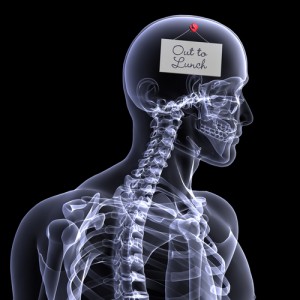 I was thinking about the remarkable power of citizens and their determination to peacefully overthrow the governments in Egypt and Tunisia. Their hope now is to replace decades old regimes with a democratic form of government whose leaders are selected and elected by the people. The model nation they are using? The United States of America of course –the country that put the “D” in “democracy.”
I was thinking about the remarkable power of citizens and their determination to peacefully overthrow the governments in Egypt and Tunisia. Their hope now is to replace decades old regimes with a democratic form of government whose leaders are selected and elected by the people. The model nation they are using? The United States of America of course –the country that put the “D” in “democracy.”
I also thought about Poland in 1989 and the Gdansk shipyard trade union, Solidarity, and South Africa in 1992 when a white elective voted in favor to dismantling apartheid through negotiation. Then I started thinking about our nation and our movement for independence and to achieve our own form of democracy which did not come through peaceful demonstrations but with bloodshed through two wars; the first with foreign powers and the second, through a civil war.
Today, 235 years later what is the state of our democracy? While its structure appears to be strong it doesn’t appear to be as widely discussed let alone appreciated as much among the citizenry as it once was.
In 1787, our nation’s Constitution was written. Included in this document was a list of amendments. In the First Amendment, our forefathers, fresh from a bitter struggle to gain our nation’s independence, outlined five key freedoms for the people: freedom of speech, press, religion, petition, and assembly. For ours and for many other nations, these freedoms have become the cornerstone for a democracy. Why? Because nations that prevent their people from practicing or expressing any of these freedoms is a nation governed by oppression.
These five rights are so ingrained in our society today that we seem to take most if not all of them for granted. This may be a positive sign of just how strong our democracy is. Or, it can be a sign of complacency which begs the question is that a sustainable model for us for today and for our future?
Can democracy be static and still be effective? Or does it need to be dynamic and constantly adjusted or even agitated? When was the last  time it was either of those?
time it was either of those?
Today, our government is dominated by a two-party system. Sure we have movements, but they tend to be eruptions within one of these two parties as opposed to separately identifying themselves as a clear option to the norm. The end result is their being folded into one of the two major parties.
Is it accurate to say a strong democracy is one where the people actively participate in their government and in the electoral process? What’s our track record when it comes to voting patterns at the local, state and national levels? Over the last 50-60 years we seem to have done a good (bad) job polarizing ourselves from our elected officials. We speak about “us” and “them,” when, in a democracy, one is supposed to be a representation of the other.
We’ve seen a continued encroachment of special interest groups gain favoritism among and influence over the public officials we have elected. It seems they have better access to them than do the people who sent them to office. Why would that be the case?
Citizens do not participate in their local government process as evidenced by poor showings at council meetings or at public forums. And with the Internet, participation in and knowledge of governing policies and programs makes it easier to become involved. Why don’t we?
Have we become “couch potatoes” when it comes to exercising our rights and freedoms? Has the United States’ form of government become a couch potato democracy?
Is democracy like courtship and then like a marriage? You know, hot and heavy, highly engaging with lots of passion early on, and then trailing off in later years where indeed in many cases the relationship becomes complacent, even inattentive by its partners. If there is any passion that’s being displayed in its later years, it’s usually because someone is arguing their POV to overturn the other person’s. (Hmmm; that reminds me of the town hall meetings of 2010 regarding national health care debates.)
What do you think? Is our democracy healthy? If so, how so? If not, what do you prescribe?
* I came up with “Couch Potato Democracy” when I tweeted the phrase last weekend. Later, I “Googled” the term and found that Ricard M. Valelly, a professor of political science at Swarthmore College, wrote an essay in 1996 for the New Prospective under that phrase. In that essay, Valelly challenges some of Robert Putnam’s assertions about the decline in American voting habits in his 1995 essay Bowling Alone that later became a best selling book of the same name.
Here’s one sign that our democracy is not healthy.